
There's a reason you're not getting the results you want from dieting: "Diets don't work," says Carla Heiser, a registered dietitian and board-certified specialist in nutritional and metabolic medicine in Chicago. That's because dieting is only a temporary solution, whereas making healthier choices on a daily basis is part of a lifestyle that can help you maintain your weight.
1- Prioritize protein.

We're not talking about massive amounts of meat or protein shakes. According to Mary Kate O'Riordan, BS, RD, "a good rule of thumb is to pair a protein with each meal or snack." "Because protein metabolizes slowly, it will keep you feeling fuller for longer."
For healthy and filling snack options, O'Riordan suggests pairing cheese with grapes and celery with peanut butter. "Plus, protein helps keep blood sugars stable!" she adds.
2- Eat at the table.

We're all extremely busy with work, school, sports, and everything else. However, it is critical to schedule time in your day for a sit-down meal. Not only can you use this time to bond with your family, but it's also good for your health: "Eating mindlessly while doing other things leads to overconsumption, and more often than not, you'll be making poorer food choices," O'Riordan says.
3- Keep healthy snacks on deck.
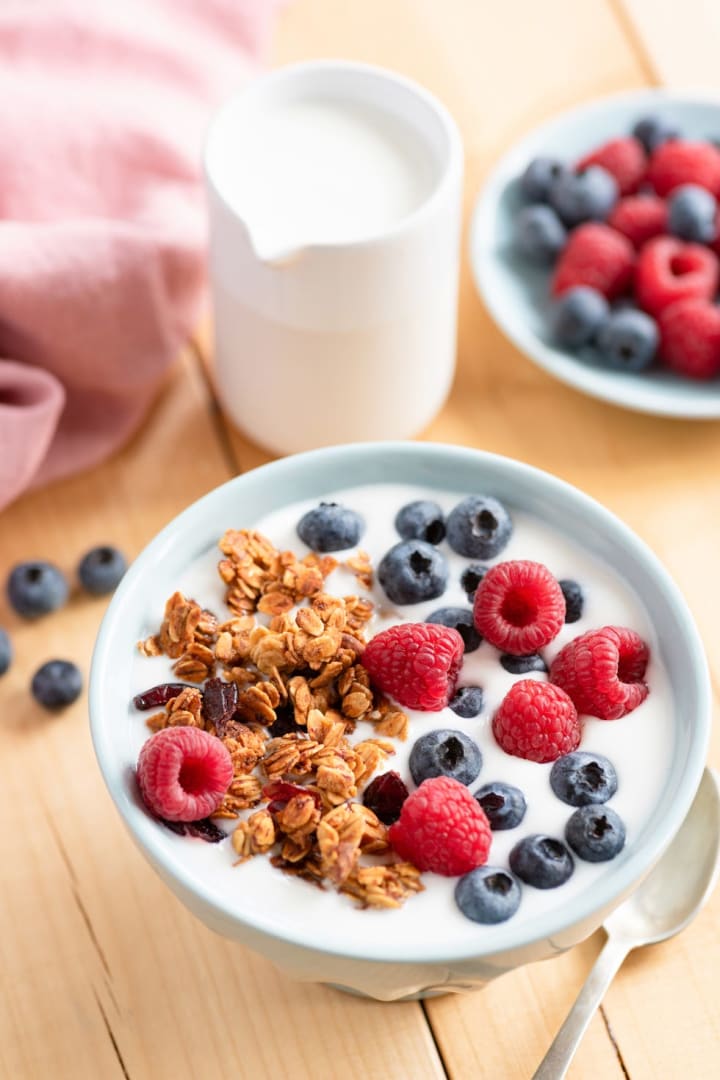
When it comes to snacking, select foods that will keep your energy levels high all day. "When you're hungry at mealtime, it's easy to overeat," says O'Riordan. "Developing a habit of keeping go-to snacks on hand for between meals is a pro-tip for maintaining healthy meal portions and properly fueling your body."
4- Thoroughly chew your food.

Chewing is the first step in the digestive process, but it receives less attention than it should. Taking the time to chew properly can help the enzymes in your saliva break down your food, making it easier for your body to digest. Chewing can also assist you in avoiding overeating.
"It takes your brain about 20 minutes to signal that you're full," says O'Riordan. "If you chew your food thoroughly and slow down mealtime, your body will have time to realize you're satiated."
5- Use smaller plates.
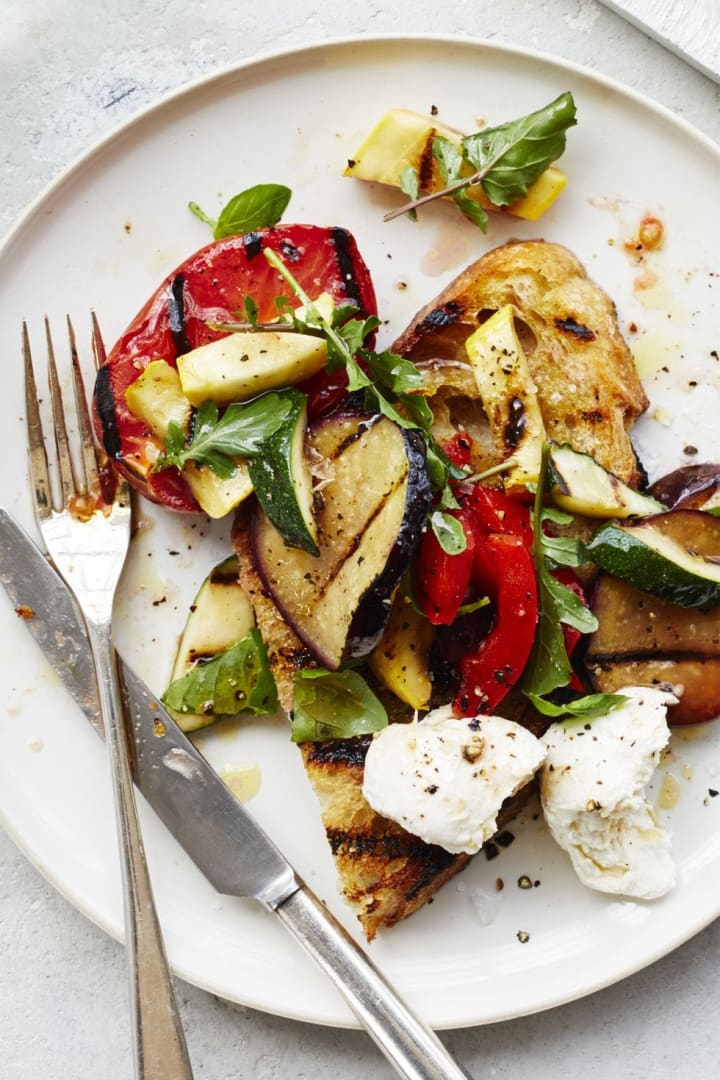
It's as simple as that: a larger plate means more food. "At meals, using a smaller plate, such as a salad plate, helps to maintain portions," says O'Riodan. This will help you remember how much food you're eating with little to no effort.
6- Don't refer to food as "bad."
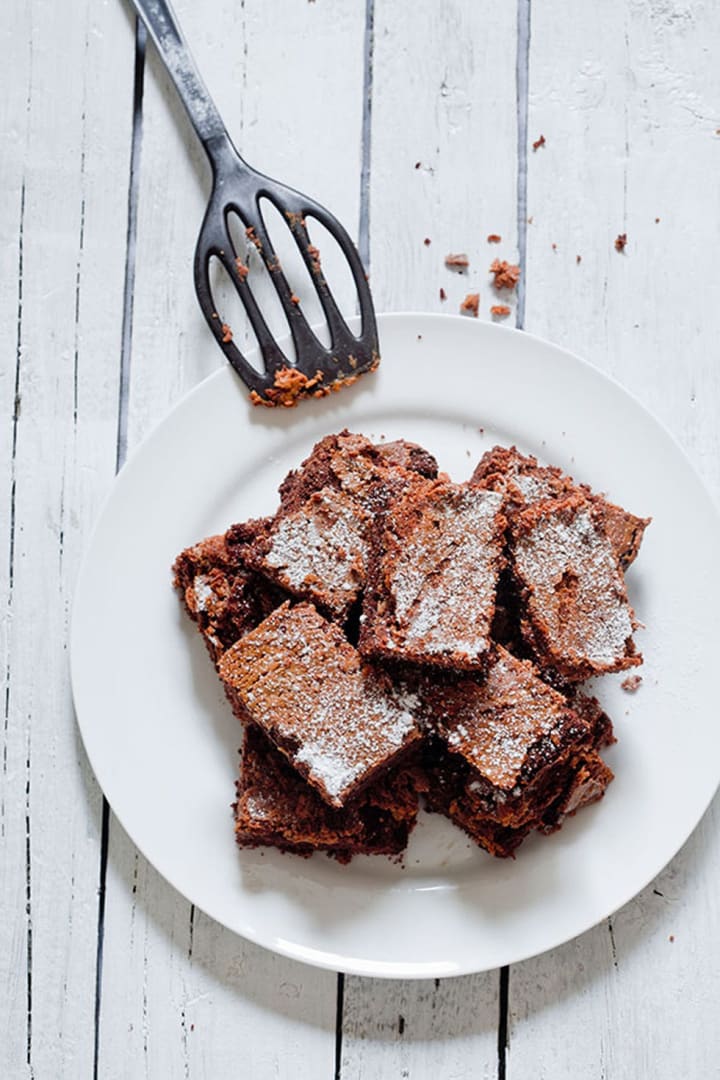
It's pointless to call brownies "bad" and kale "good." Women who were denied chocolate for a week in a University of Toronto study had more cravings and were more likely to eat more chocolate.
A subsequent 2010 study confirmed the findings: If you tell yourself you can't have chocolate and try not to think about it, you'll obsess over... chocolate — and end up scarfing Snickers. It is related to the idea that you are a dieting failure, which causes you to feel guilty and overeat as a result. Remove the word "bad" from your vocabulary for a healthier relationship with food.
7- Drink water.

Not only is staying hydrated important for overall health (especially when exercising), but we sometimes confuse thirst with hunger, according to the Mayo Clinic. "Staying hydrated is critical for weight loss and overall health," registered dietitian Jackie London told Woman's Day.
While sugary beverages like soda, juice, sweetened coffee, and cocktails may be tempting, try to drink plenty of water instead. Keep a pitcher of water at your desk as a reminder, and carry a reusable water bottle with you when you're on the go.
8- Don't waste time on diet foods.

In theory, foods with low-fat or low-calorie labels sound appealing. The issue is that they are frequently highly processed and high in carbs. "These will be converted to sugar in your body and may contribute to weight gain," Heiser says. Furthermore, after removing the fat, companies enhance these products by adding sugar, salt, and other additives.
"Even women who don't diet read ingredient labels," says Lori Shemek, PhD, author of Fight FAT Inflammation. But they do it to cut through the confusing health claims plastered across the front of the package and get to the bottom of what's really in the food.
9- Let yourself off the hook.
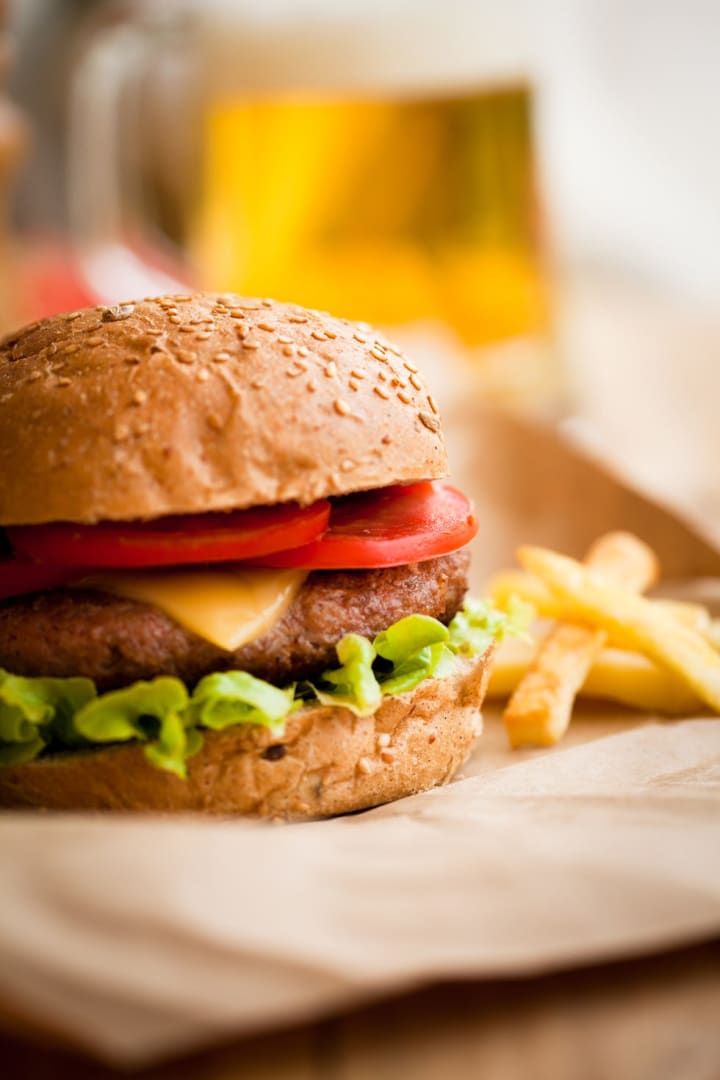
According to new research from the University of Waterloo in Canada, self-compassion can lead to a healthier relationship with food and a lower BMI. Low self-esteem can lead to disordered eating (such as bingeing) and weight gain. "Treat yourself as you would a loved one: with encouragement and affirmation," Dr. Shemek advises.
10- Get your beauty rest.

When you're busy, the first thing to suffer is sleep. However, if you want to maintain your weight, sleep should be your top priority, according to research. Dr. Shemek recommends snoozing on days when you're sleep-deprived and have to choose between getting an extra hour of sleep or getting up early to work out.
"Sleep deprivation has hormonal effects that cause weight gain and change your appetite to prefer high-calorie foods. Furthermore, you will lack the energy to exercise effectively "she claims.
11- Don't treat every day as a special occasion.

Doughnuts at work, a decadent restaurant meal, and cake at a friend's birthday party while occasional treats are necessary, Heiser believes that your overall diet is what keeps your weight stable. So choose your treats wisely and maintain a healthy balance.
12- Avoid diet soda.

Artificial sweeteners are divisive. While some studies show that calorie-free drinks have no effect on weight, other research suggests that they may cause weight gain by stimulating hunger. Dr. Shemek recommends avoiding them entirely. "Diet sodas prime the brain to crave more sugar, and many people become addicted to them," she says.
13- Talk (a lot) over dinner.

Yes, you're there to eat, but you're also there to catch up with your fellow diners, so make them the focus of your attention. The gabfest can naturally slow you down, causing you to eat less.
One study published in The Journal of Clinical Endocrinology & Metabolism asked participants to consume a bowl of ice cream in five or 30 minutes. Those who liked it reported feeling fuller and excreting more of the "stop eating" gut hormone peptide YY. So enjoy the lasagna, but appreciate the company even more.

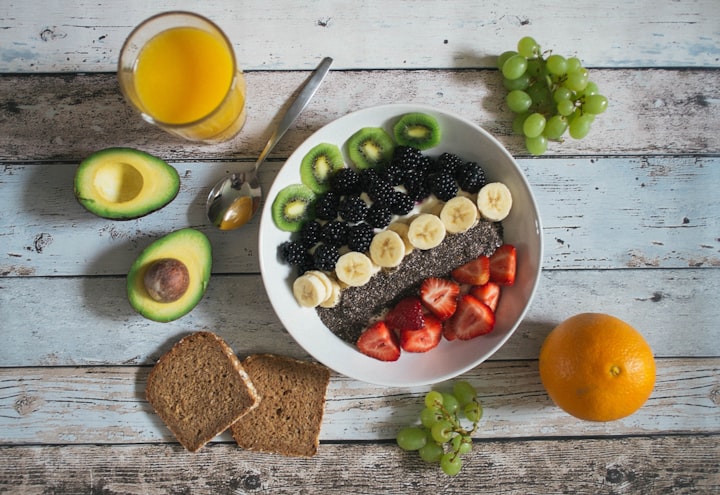



Comments
There are no comments for this story
Be the first to respond and start the conversation.